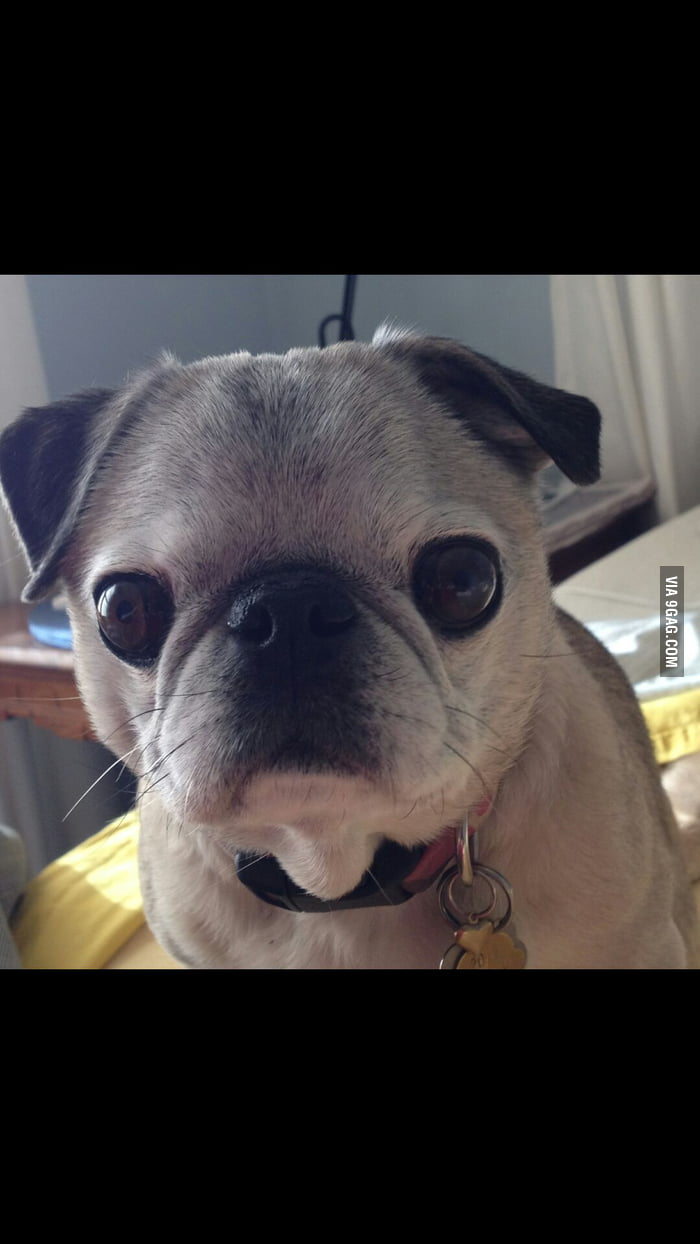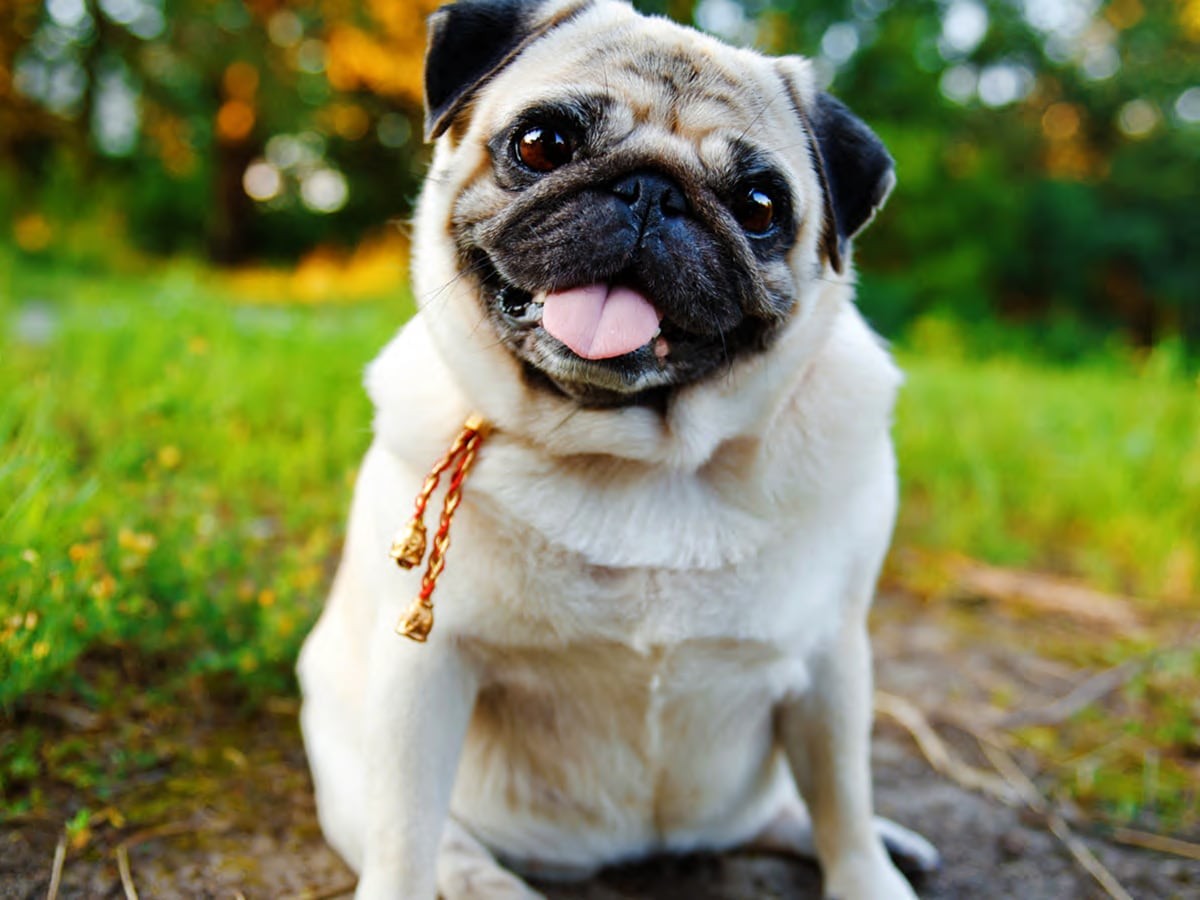Do you know that Pugs with Down Syndrome are unique and special creatures that deserve love and compassion?
Pugs with Down Syndrome, also known as Puggles, are adorable dogs with distinctive physical and behavioral characteristics caused by an extra copy of chromosome 21, leading to developmental delays and cognitive impairments.
These exceptional canines often have flattened facial features, large protruding tongues, short stature, and an endearingly playful nature. Their cognitive abilities may vary, but they are known for their affectionate personalities and unwavering loyalty.
Transition to main article topics
Pugs with Down Syndrome
Importance and Challenges
Pugs with Down Syndrome face unique challenges due to their genetic condition. However, with proper care and support, they can live happy and fulfilling lives. Their presence in our society raises awareness about genetic diversity and challenges associated with developmental disabilities.
Health Considerations
Pugs with Down Syndrome may experience various health issues, including heart defects, respiratory problems, and joint dysplasia. Regular veterinary check-ups and specialized care are essential for managing their well-being.
Training and Enrichment
Training a Pug with Down Syndrome requires patience and positive reinforcement. They may learn commands at a slower pace, but with consistency and encouragement, they can develop basic obedience skills. Enrichment activities, such as puzzle toys and interactive play, stimulate their cognitive abilities and provide mental enrichment.
Pugs with Down Syndrome
Pugs with Down Syndrome, also known as Puggles, are adorable dogs with distinctive physical and behavioral characteristics caused by an extra copy of chromosome 21, leading to developmental delays and cognitive impairments.
- Unique Appearance: Flattened facial features, large protruding tongues, and short stature
- Cognitive Challenges: Developmental delays and cognitive impairments
- Health Concerns: Heart defects, respiratory problems, and joint dysplasia
- Training and Enrichment: Require patience, positive reinforcement, and enrichment activities
- Special Care: Need regular veterinary check-ups and specialized care
These key aspects highlight the unique challenges and needs of Pugs with Down Syndrome. They require specialized care, training, and enrichment to live happy and fulfilling lives. Their presence in our society raises awareness about genetic diversity and challenges associated with developmental disabilities.
Unique Appearance
The distinctive physical characteristics of Pugs with Down Syndrome, such as flattened facial features, large protruding tongues, and short stature, are caused by the extra copy of chromosome 21 that affects their development. These unique traits can impact their health, behavior, and overall well-being.
- Respiratory Issues: The flattened facial structure, including a shortened muzzle and narrow nostrils, can lead to breathing difficulties, especially during exercise or in hot weather.
- Dental Problems: The protruding tongue and misaligned teeth can make it challenging for Pugs with Down Syndrome to eat and groom themselves, requiring special dental care.
- Joint and Mobility Issues: The short stature and skeletal abnormalities can cause joint pain and mobility problems, affecting their ability to walk, run, and play.
- Skin and Coat: Pugs with Down Syndrome may have dry, sensitive skin and a thinner coat, making them more susceptible to skin conditions and temperature fluctuations.
Understanding these unique physical characteristics is crucial for providing appropriate care and support to Pugs with Down Syndrome, ensuring their comfort, health, and overall well-being.
Cognitive Challenges
Pugs with Down Syndrome may experience a range of cognitive challenges due to the extra copy of chromosome 21, which affects their brain development and cognitive abilities.
- Learning Difficulties: Pugs with Down Syndrome may have difficulty learning new commands or behaviors, and may require more repetition and patience during training.
- Memory Issues: They may have difficulty remembering commands or tasks, and may become easily confused or disoriented.
- Attention Deficit: Pugs with Down Syndrome may have difficulty focusing and paying attention, which can impact their ability to learn and follow instructions.
- Communication Challenges: They may have difficulty communicating their needs or understanding verbal cues, and may rely more onand visual aids.
These cognitive challenges can impact the daily lives of Pugs with Down Syndrome, and require understanding, patience, and specialized care from their owners and caregivers. Early intervention and tailored training programs can help to improve their cognitive function and maximize their quality of life.
Health Concerns
Pugs with Down Syndrome are prone to various health concerns due to their genetic condition. These health issues can impact their quality of life and require specialized care and attention.
- Heart Defects:
Pugs with Down Syndrome have an increased risk of developing heart defects, such as atrial septal defect (ASD) and ventricular septal defect (VSD). These defects can cause abnormal blood flow and lead to heart murmurs, exercise intolerance, and other complications.
- Respiratory Problems:
The flattened facial structure of Pugs with Down Syndrome can lead to breathing difficulties, especially during exercise or in hot weather. They may experience shortness of breath, wheezing, and an increased risk of respiratory infections.
- Joint Dysplasia:
Pugs with Down Syndrome are prone to joint dysplasia, a condition where the hip or elbow joints do not develop properly. This can cause pain, lameness, and mobility issues, affecting their ability to walk, run, and play.
These health concerns highlight the importance of regular veterinary check-ups and specialized care for Pugs with Down Syndrome. Early detection and management of these conditions can improve their overall health, well-being, and quality of life.
Training and Enrichment
Training and enrichment are essential for the well-being and development of Pugs with Down Syndrome. Due to their unique cognitive challenges, they require specialized training methods that emphasize patience, positive reinforcement, and tailored enrichment activities.
Positive reinforcement, such as treats, praise, or play, is crucial for motivating Pugs with Down Syndrome during training. Training sessions should be short and frequent, with a focus on basic obedience commands and socialization skills. Enrichment activities, such as puzzle toys, interactive games, and scent work, stimulate their cognitive abilities and provide mental challenges.
By incorporating these training and enrichment strategies, owners and caregivers can enhance the quality of life for Pugs with Down Syndrome. These activities not only improve their cognitive function and behavior but also strengthen the bond between the dog and its human family.
Special Care
Pugs with Down Syndrome require specialized care and regular veterinary check-ups throughout their lives to ensure their health and well-being.
- Regular Veterinary Check-ups:
Regular veterinary check-ups are essential for early detection and management of health issues common in Pugs with Down Syndrome, such as heart defects, respiratory problems, and joint dysplasia. These check-ups allow veterinarians to monitor the dog's overall health, provide preventive care, and administer necessary vaccinations.
- Specialized Care for Health Conditions:
Pugs with Down Syndrome may require specialized care for specific health conditions they are prone to. For example, heart defects may require medication or surgery, while respiratory problems may necessitate the use of inhalers or oxygen therapy. Joint dysplasia can be managed with pain medication, physical therapy, or, in severe cases, surgery.
- Dental Care:
Pugs with Down Syndrome often have misaligned teeth and protruding tongues, making dental care crucial. Regular dental check-ups and cleanings are essential to prevent dental disease and maintain oral hygiene.
- Nutritional Support:
Pugs with Down Syndrome may have nutritional needs that differ from other dogs. They may require a specialized diet to manage weight and prevent obesity, which can put strain on their joints and heart.
Providing specialized care and regular veterinary check-ups is essential for ensuring the health and well-being of Pugs with Down Syndrome. By addressing their unique needs, owners and caregivers can help these dogs live long, happy, and fulfilling lives.
FAQs on Pugs with Down Syndrome
This section addresses frequently asked questions about Pugs with Down Syndrome, providing informative answers to common concerns and misconceptions.
Question 1: What causes Down Syndrome in Pugs?
Down Syndrome in Pugs, also known as Puggles, is caused by an extra copy of chromosome 21 during cell division. This genetic variation leads to developmental delays and cognitive impairments, resulting in the distinctive characteristics of Pugs with Down Syndrome.
Question 2: What are the common health concerns associated with Pugs with Down Syndrome?
Pugs with Down Syndrome are prone to various health issues due to their genetic condition. These concerns include heart defects, respiratory problems, joint dysplasia, dental issues, and skin conditions. Regular veterinary check-ups and specialized care are crucial for managing these health conditions and ensuring their well-being.
Summary: Pugs with Down Syndrome require special care and attention due to their unique genetic makeup. Understanding the causes and common health concerns associated with this condition is essential for providing appropriate care and support, enabling these adorable dogs to live happy and fulfilling lives.
Pugs with Down Syndrome
In conclusion, Pugs with Down Syndrome, also known as Puggles, are unique and exceptional creatures that require specialized care and attention throughout their lives. Their distinctive physical and cognitive characteristics, coupled with potential health concerns, necessitate a deep understanding of their needs and challenges.
Embracing Pugs with Down Syndrome into our families and communities not only enriches their lives but also raises awareness about genetic diversity and the importance of inclusivity. By providing them with love, patience, and appropriate care, we can empower these adorable dogs to thrive and live fulfilling lives.

